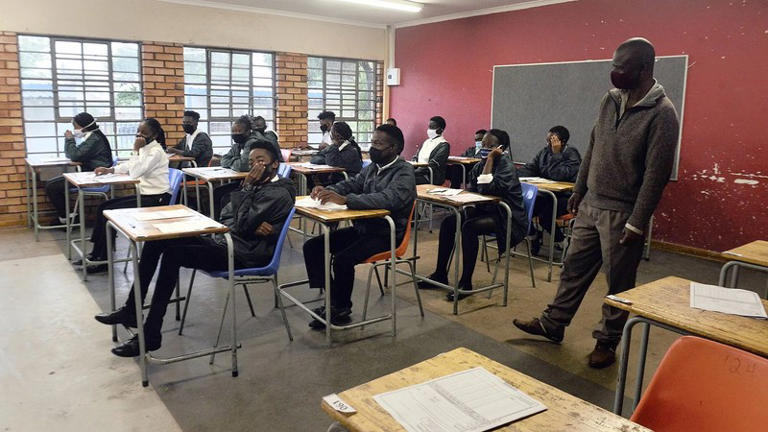Over 8,000 teacher assistants recruited by the Gauteng provincial government under the Basic Education Employment Initiative (BEEI) have not received their June salary due to delays caused by a national verification process. These assistants were officially employed on 1st June 2025 to provide classroom support for overburdened teachers and create job opportunities for young, unemployed South Africans. The programme was designed to empower youth between the ages of 18 and 34 with temporary work experience in the education sector while addressing staff shortages in public schools across the province.
The Gauteng Department of Education, led by Education MEC Matome Chiloane and Premier Panyaza Lesufi, has publicly apologised for the inconvenience faced by the affected individuals. Department spokesperson Steve Mabona said the delay was due to a verification process that must be carried out by the National Department of Basic Education before any payment is made. According to Mabona, many of the assistants submitted incomplete or incorrect information, which has made the verification process more difficult and time-consuming. He stated that common issues included invalid or duplicate ID numbers, missing personal records, and incorrect banking details. As a result, those whose information could not be verified were excluded from the initial payroll, while those with correct records have already begun receiving their stipends.
A female assistant teacher stationed at a school in Kempton Park shared her experience, saying she was worried about how she would afford transportation and basic needs without her salary. She explained that officials at her school told her that the problem was not with the school, but at a higher level. Like many others, she was depending on the R4,000 monthly stipend for survival. She expressed hope that the salary would be paid before the end of July, as promised by the department.
The education department has assured all beneficiaries that they will be paid in full as soon as the verification process is completed. Mabona emphasised that the department was working closely with national officials to finalise all outstanding cases. He urged affected assistants to remain patient and continue reporting for duty, stating that no one would be left out once their information was confirmed. According to him, all salaries for June will be paid before the end of July 2025.
The BEEI programme was revived in March 2025 after the provincial government secured R200 million in funding through the National Youth Employment Initiative. Premier Panyaza Lesufi had promised that the programme would not only support teachers in overcrowded classrooms but also help reduce unemployment among the youth in Gauteng. He dismissed claims that the initiative was politically motivated and insisted that it was a genuine effort to address both educational and economic challenges in the province. The first phase of the programme had ended abruptly in 2024 when funds were withdrawn, leading to the dismissal of over 1,000 assistants. This second phase was intended to correct past mistakes and provide more structured support and oversight.
Now, as schools resume full activities for the third academic term, many assistants continue to work without pay, raising concerns about their morale and ability to continue their duties effectively. Some school principals have acknowledged the frustration faced by the assistants and have asked for more communication from the department. Several assistants have reportedly stopped coming to school, while others are still reporting daily despite not being paid, in hopes that their patience will soon be rewarded.
The national verification system, which is meant to ensure that only eligible and correctly registered individuals receive payments, has been criticised by some education observers for being too rigid and slow. However, department officials maintain that it is a necessary safeguard to prevent fraud and misuse of public funds. They say past experiences have shown that if verification is not taken seriously, the system becomes vulnerable to exploitation.
Meanwhile, school district offices have been instructed to support schools in helping affected assistants update and correct their information. District managers are also expected to submit daily progress reports on the verification process to the provincial department. The Gauteng Department of Education has promised to improve communication with all teacher assistants to keep them informed about the status of their payments.
With the deadline for the full payment of all June salaries set for the end of July, thousands of young people in Gauteng are waiting anxiously. For many of them, this job is their first source of income, and any delay, no matter the reason, affects their daily lives. The department is under pressure to resolve the issue quickly and ensure that the same problem does not occur in the coming months. Going forward, better systems, clearer instructions during recruitment, and stronger coordination between national and provincial departments will be key in avoiding similar problems.
This delay, while unintended, has put a spotlight on the challenges of rolling out large-scale employment projects in the public sector. The lesson for other provinces and even countries like Nigeria is that effective planning, verification, and communication are essential when dealing with mass employment and youth-focused initiatives. Without these, good intentions can quickly turn into frustration for those meant to benefit.
